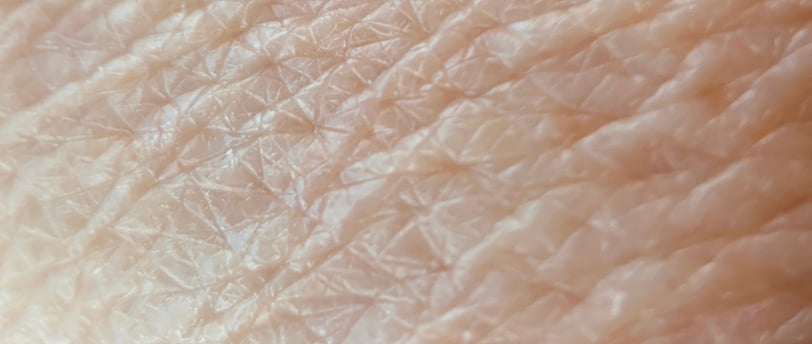Mature and Aging Skin: Characteristics and Care
As we age, our skin undergoes significant changes that affect its appearance, texture, and needs. Mature or aging skin is typically thinner, drier, less elastic, and more sensitive. These changes are a natural part of life, influenced by both internal factors (like genetics and the natural aging process) and external factors (such as sun exposure, pollution, and lifestyle choices).


Characteristics of Aging Skin
Thinner and Drier: The skin produces less collagen, elastin, and natural oils, leading to dryness, roughness, and a thinner texture.
Loss of Elasticity and Firmness: Reduced collagen and elastin make the skin less firm and more prone to sagging.
Wrinkles and Fine Lines: First appear around the eyes and mouth, then deepen over time, especially in areas of frequent facial movement.
Uneven Tone and Pigmentation: Age spots, redness, and uneven skin tone become more common due to slower cell turnover and sun exposure.
Increased Sensitivity: The skin barrier weakens, making the skin more reactive, prone to redness, irritation, and itching.
Visible Blood Vessels and Blemishes: Broken capillaries and pigment spots may appear more frequently.
Why Does Skin Age?
Intrinsic Aging: Natural, genetically determined aging that starts in our mid-20s and becomes more visible over time. It leads to slower cell renewal, reduced oil production, and gradual loss of skin volume and density.
Extrinsic Aging: Caused by external factors like UV radiation, smoking, poor nutrition, stress, and environmental pollution. These factors accelerate the breakdown of collagen and elastin, leading to premature aging and deeper wrinkles.
Skincare Tips for Mature and Aging Skin
Gentle Cleansing: Use mild, non-drying cleansers to avoid stripping the skin of its natural oils. Cleanse every morning and evening to remove impurities and prepare the skin for treatment.
Intensive Moisturizing: Choose rich creams with hydrating ingredients like hyaluronic acid, urea, glycerin, and nourishing plant oils (such as argan, jojoba, or avocado oil). These help restore moisture and strengthen the skin barrier.
Antioxidant Protection: Look for products with vitamins A and E, coenzyme Q10, and other antioxidants to fight free radicals and support skin repair.
Sun Protection: Daily use of broad spectrum SPF is essential to prevent further damage and pigmentation.
Targeted Treatments: Incorporate serums with active ingredients like peptides, retinol, or growth factors to support collagen production and skin renewal.
Eye Care: Use nourishing creams specifically for the delicate eye area to address fine lines and puffiness.
Weekly Care: Exfoliate gently once or twice a month to remove dead skin cells and use hydrating masks for extra nourishment.
Lifestyle Tips
Maintain a balanced diet rich in antioxidants and healthy fats.
Stay hydrated by drinking plenty of water.
Avoid smoking and excessive alcohol consumption.
Get enough sleep and manage stress.
Aging skin is a natural part of life, but with the right care and attention, you can maintain comfort, radiance, and resilience at any age. Focus on gentle cleansing, deep hydration, sun protection, and nourishing your skin with quality ingredients. Remember, the goal is not to erase the signs of aging, but to keep your skin healthy, comfortable, and glowing as you embrace each stage of life.
